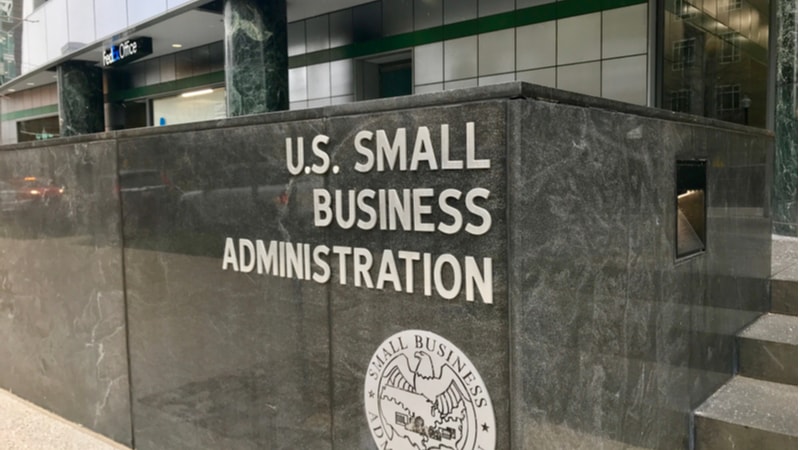
The Small Business Administration’s (SBA) Office of Inspector General (OIG) has raised concerns over the agency’s decision to end fraud collection efforts of delinquent COVID-19 Economic Injury Disaster Loans (EIDL) with an outstanding balance of $100,000 or less.
SBA based its decision to end COVID-19 fraud collection efforts on a cost-benefit analysis used by a dissimilar loan program and a private-sector loan servicing model to estimate proceeds from collections and collection costs.
According to SBA, servicing the delinquent loan portfolio of COVID-19 EIDLs of $100,000 or less will cost over $250 million per year, with an insubstantial expected recovery. Based on SBA’s estimate of expected delinquencies, the delinquent portfolio could range between $21 billion to $35 billion.
“[However,] SBA’s determination that portfolio servicing costs would exceed $250 million per year also appears unreliable,” the IG stated in the report. “The cost-benefit analysis did not include periodic comparisons of costs incurred and amounts collected as Federal regulations require.”
The IG also highlighted that SBA’s decision to not go after people who fraudulently collected EIDL funds of less than $100,000 violates the Debt Collection Improvement Act of 1996, which prohibits ending collections on fraudulent, false, or misrepresented claims. The IG explained that the decision went against established legislation because SBA OIG and other oversight agencies are still working to identify COVID-19 EIDL fraud that may not have been identified by SBA.
“By prematurely ending active collection activities on delinquent COVID-19 EIDLs with balances of $100,000 or less, SBA risks violating the Federal law prohibiting agencies from ending collections on fraudulent, false, or misrepresented claims, given that the full extent of fraudulent loans in the portfolio is unknown,” the agency watchdog said.
In addition, the IG stated that SBA’s decision to end active collection of fraudulent COVID-19 funds makes it unclear whether it also plans to end fraud collection efforts of people who received multiple COVID-19 EIDLs of $100,000 or less that, when combined, exceed $100,000.
In its report, the IG made five recommendations:
- Perform a comprehensive cost-benefit analysis, consistent with Federal regulations, to include periodic comparisons of costs incurred and amounts collected on the portfolio of COVID-19 EIDLs of $100,000 or less to assess whether collection costs exceed recovery amounts;
- Reevaluate and amend as appropriate the decision to end active collections contingent on the outcome of the more comprehensive cost-benefit analysis;
- Ensure SBA does not end active collections on any COVID-19 EIDL of $100,000 or less made to borrowers who received multiple COVID-19 EIDLs that, when combined, exceed $100,000;
- Ensure SBA does not end active collections on any COVID-19 EIDL that appears to be fraudulent, false, or misrepresented without reviewing the loan application for fraud and attempting active collection regardless of the outcome of a comprehensive cost-benefit analysis; and
- Evaluate the COVID-19 EIDL portfolio to determine if selling the portfolio is in the government’s best interest.
“SBA agreed with recommendation three, contingently agreed to recommendation two based on the outcome of recommendation one, partially agreed with recommendations one and four, and disagreed with recommendation five,” the IG reported.
